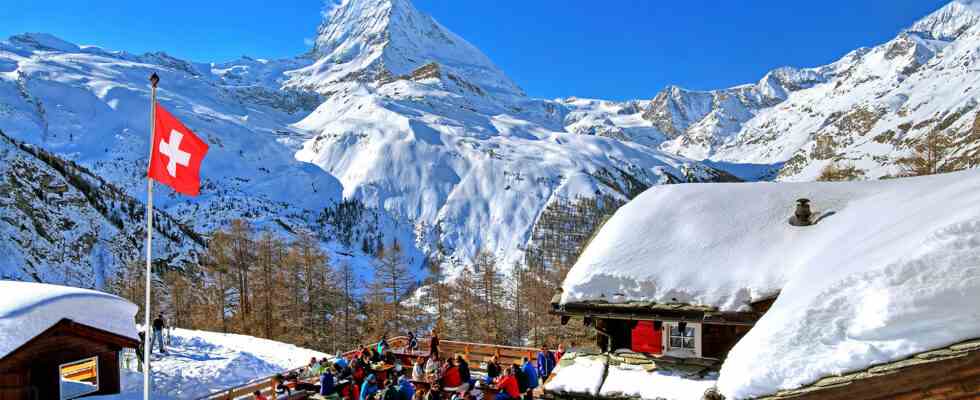Status: 02/11/2023 3:34 p.m
The principle of neutrality prohibits Switzerland from supplying arms and ammunition to Ukraine. Other countries are also not allowed to pass on weapons purchased in Switzerland. Now the pressure is growing on the government to relax the requirements.
“Switzerland in the neutrality trap” – this was the headline in the “Neue Zürcher Zeitung”. The online medium “Watson” called neutrality a “block and stone” for Switzerland. The broadcaster SRF said briefly: the issue of neutrality. It’s about nothing less than the traditional cornerstone of Swiss foreign policy – and about whether and how the neutral country might not allow what Germany, Denmark and Spain are demanding: namely, being allowed to pass on ammunition and weapons bought in Switzerland to Ukraine .
Maya Riniker is a FDP member of the Swiss parliament and a member of the security policy commission. She says: “We are a neutral country. We will never support a war party, that’s very clear. But that within the limits of our possibilities we examine every option that we could take to offer help here – these are the Challenges that we absolutely must tackle.”
Government to relax rules
The security policy committees of both chambers of parliament have now recommended relaxing the strict Swiss regulations. The proposals range from a “Lex Ukraine,” which would allow weapons and ammunition to be passed on immediately, to a shorter period of validity for the “non-re-export declaration,” which other countries must sign when buying weapons in Switzerland.
After almost a year of Russian war of aggression in Ukraine, many Swiss politicians have realized that the neutral country, as a democratic constitutional state, does not exist in a vacuum, says Olaf Wientzek, head of the Konrad Adenauer Foundation office in Geneva.
“Ultimately, it is also in Switzerland’s interests that the values of democracy, respect for international law and the rule of law are lived around them in the same way. And if, as in the case of Russia, one state massively violates all these principles and another country completely unprovoked attacks, then precisely these values will also be damaged. It is therefore also in Switzerland’s interest that Russia should not be successful in this,” says Wientzek. And Ukraine must therefore also be able to defend itself with Swiss weapons and ammunition.
Arms industry complains about lack of exports
More and more citizens agree that Ukraine must be able to defend itself with Swiss weapons and ammunition. According to a recent opinion poll, 55 percent are in favor of arms being re-exported to Ukraine. The armaments industry is also putting pressure on.
The need is huge. “It’s about the basis of existence,” said Matthias Zoller, Secretary General of the metal and machine association SwissMem, the broadcaster SRF. The export business is breaking away for the Swiss armaments companies, says Zoller. Germany, among others, has announced that it will buy elsewhere in the future because of the Swiss refusal to pass on ammunition.
“Neutrality Initiative” of the Swiss People’s Party
The calls for help from the domestic armaments companies accelerate the political debates about the meaning and purpose of Swiss neutrality. “Look, we have armed neutrality in Switzerland. We also have to protect our population. There needs to be an armaments industry, and then we can also produce for other countries that are very, very dependent on our good products,” says FDP politician Riniker.
So there are very different interests and motives that may now lead to a reinterpretation of Swiss neutrality.
However, the debate is also fueled by the other side. Christoph Blocher, ex-head of the right-wing Swiss People’s Party SVP, has launched a “neutrality initiative”. With a referendum he wants “the way back” – to, as it is said, “permanent, comprehensive and armed Swiss neutrality”.
Neutrality and Aggressive War – Debate on Swiss “War Material Law”
Kathrin Hondl, ARD Geneva, February 11, 2023 2:06 p.m

